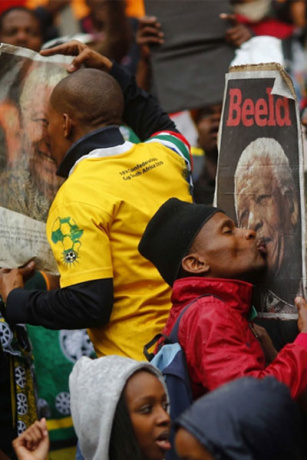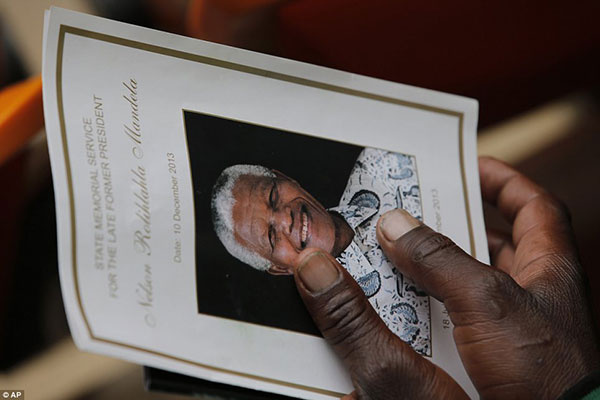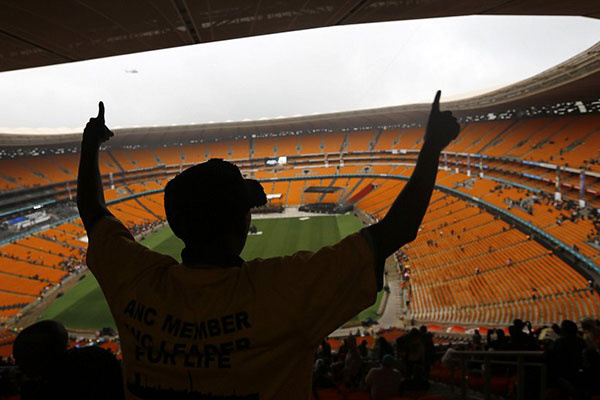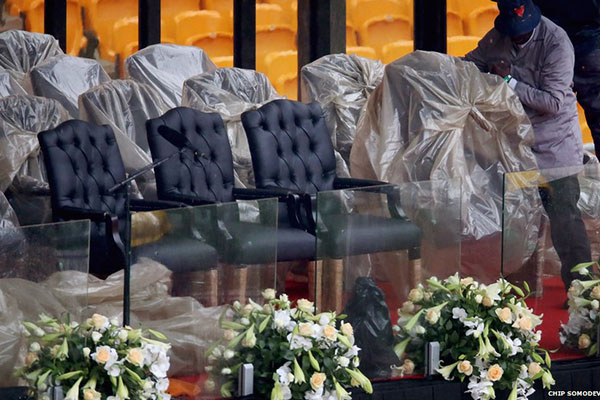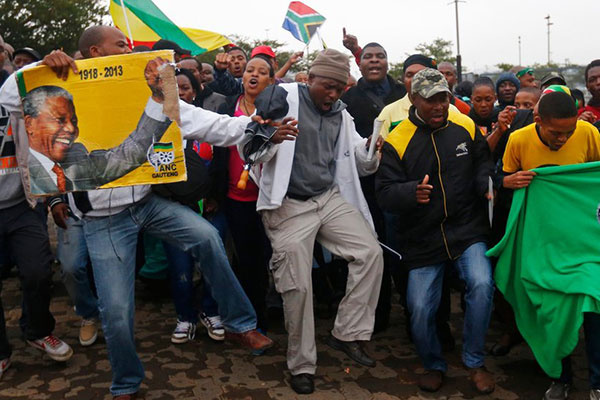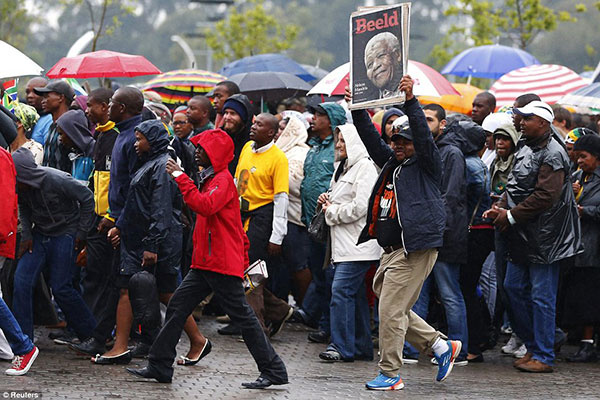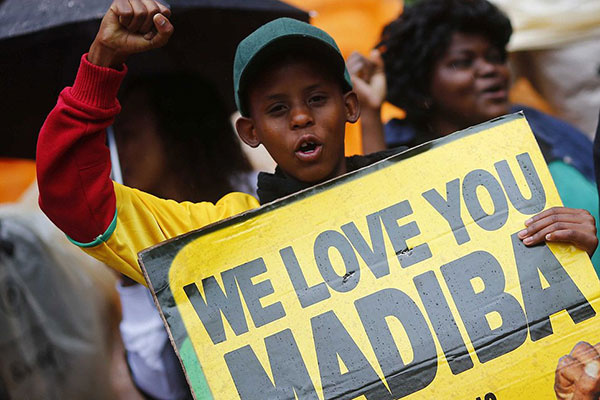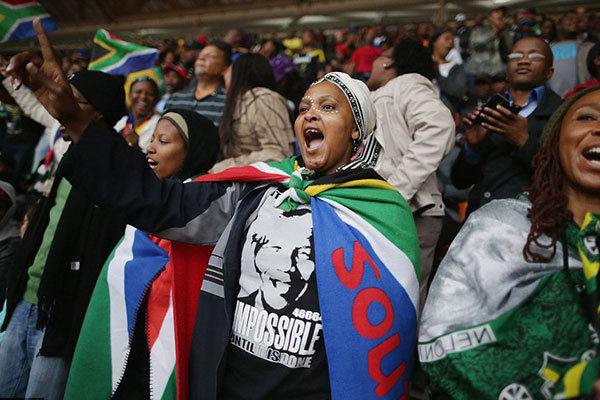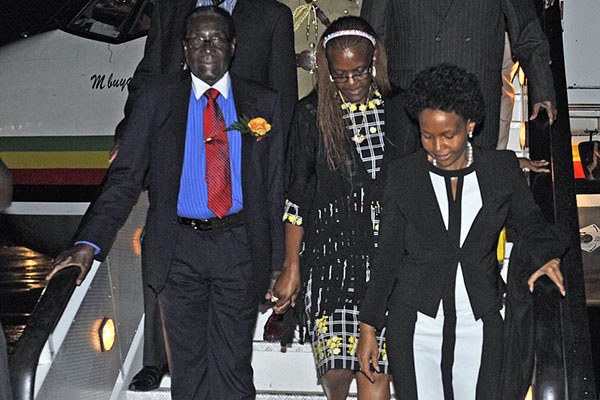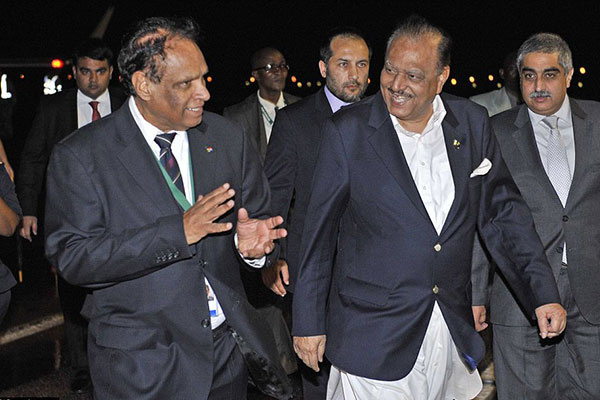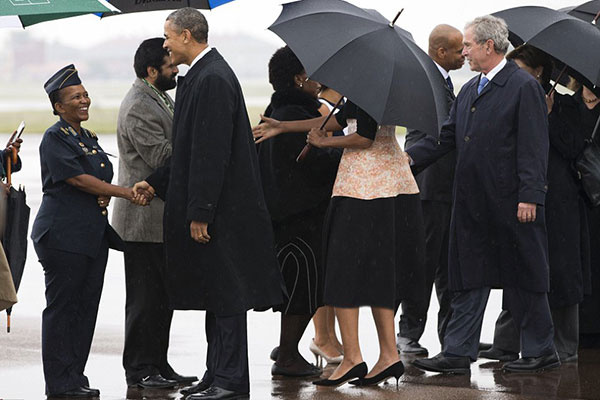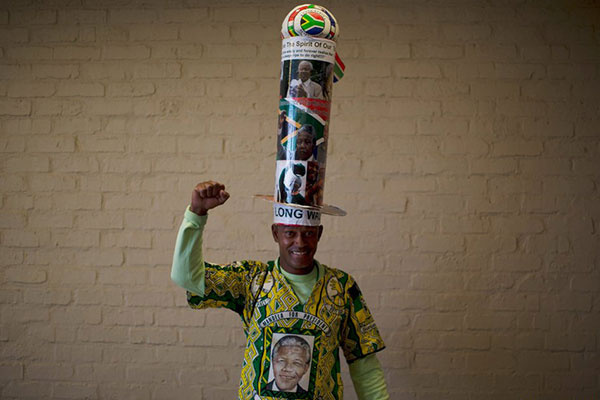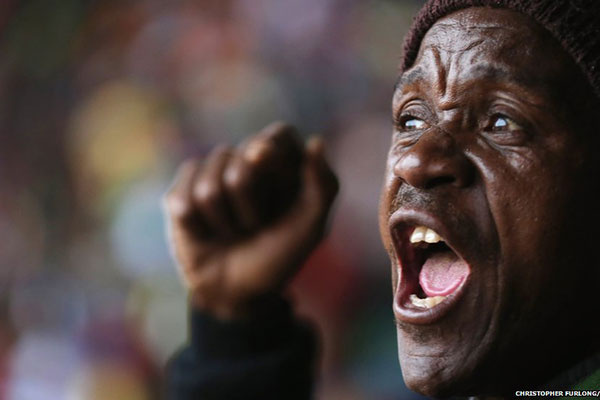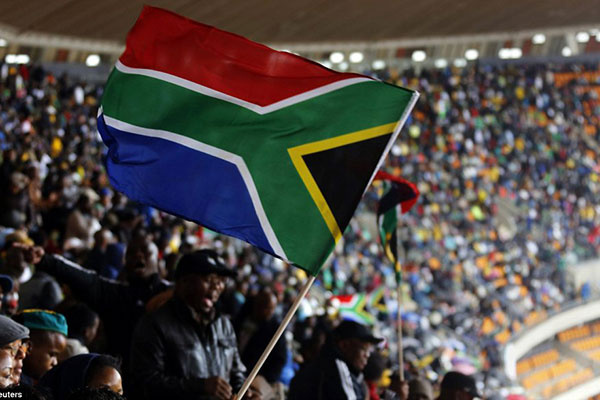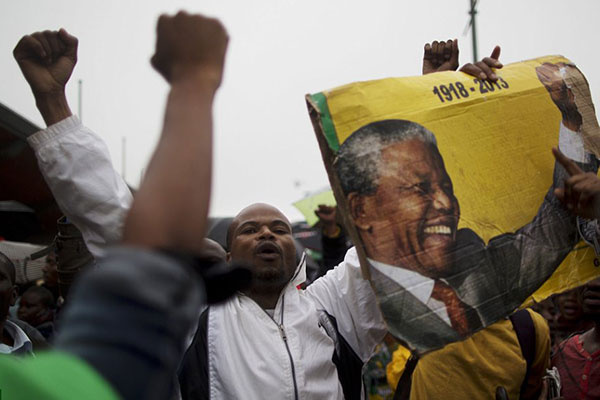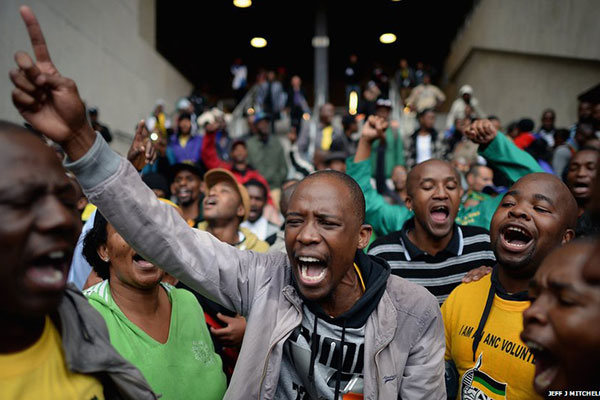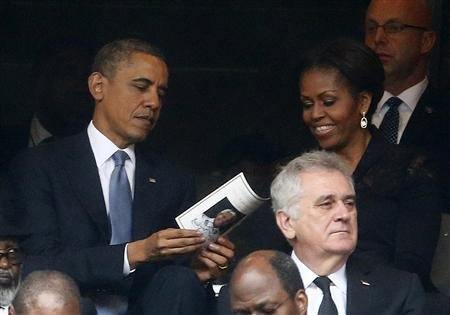World leaders, South Africans remember Mandela
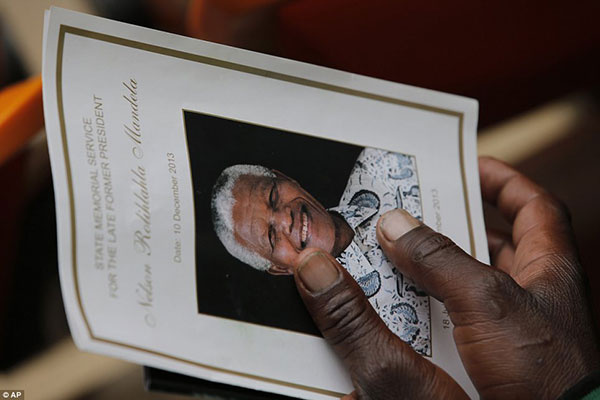
Crowds converged on FNB Stadium in Soweto, the Johannesburg township that was a stronghold of support for the anti-apartheid struggle that Mandela embodied as a prisoner of white rule for 27 years and then during a peril-fraught transition to the all-race elections that made him president.
However, steady rain kept many people away. Shortly before the start of the ceremony, there were some 20,000 people in the 95,000-capacity stadium. Other area stadiums equipped with giant video screens for anticipated overflow crowds were largely empty.
"I would not have the life I have today if it was not for him," said Matlhogonolo Mothoagae, a postgraduate marketing student who arrived hours before the stadium gates opened. "He was jailed so we could have our freedom."
Rohan Laird, the 54-year-old CEO of a health insurance company, said he grew up during white rule in a "privileged position" as a white South African and that Mandela helped whites work through a burden of guilt.
"His reconciliation allowed whites to be released themselves," Lair said. "I honestly don't think the world will see another leader like Nelson Mandela."
Workers were still welding at a VIP area as the first spectators arrived amid an enormous logistical challenge of organizing the memorial for Mandela, who died Dec. 5 in his Johannesburg home at the age of 95.
U.S. President Barack Obama landed in South Africa early Tuesday. Besides Obama, eulogies were to be delivered by U.N. Secretary-General Ban Ki-moon, Chinese Vice President Li Yuanchao and Cuban President Raul Castro.
Other speakers include the presidents of Brazil, Namibia and India, as well as tributes from Mandela's grandchildren. South African President Jacob Zuma was to give the keynote address.
Mandela's widow, Graca Machel, was at the stadium. So were actress Charlize Theron and singer Bono.
Tuesday was the 20th anniversary of the day when Mandela and South Africa's last apartheid-era president, F.W. de Klerk, received the Nobel Peace Prize for their efforts to bring peace to their country.
Mandela said in his acceptance speech at the time: "We live with the hope that as she battles to remake herself, South Africa will be like a microcosm of the new world that is striving to be born."
The sounds of horns and cheering filled the stadium ahead of the ceremony, due to start at 11 a.m. (0900 GMT, 4 a.m. EST). Rain sent those who arrived early into the stadium's covered upper deck, and many of the lower seats were empty.
People blew on vuvuzelas, the plastic horn that was widely used during the World Cup soccer tournament in 2010, and sang songs from the era of the anti-apartheid struggle decades ago.
"It is a moment of sadness celebrated by song and dance, which is what we South Africans do," said Xolisa Madywabe, CEO of a South African investment firm.
The 95,000-capacity soccer venue was also the spot where Mandela made his last public appearance at the closing ceremony of the World Cup. After the memorial, his body will lie in state for three days at the Union Buildings in Pretoria, once the seat of white power, before burial Sunday in his rural childhood village of Qunu in Eastern Cape Province.
Police promised tight security, locking down roads kilometers (miles) around the stadium. However, the first crowds entered the stadium without being searched.
John Allen, a 48-year-old pastor from the U.S. state of Arkansas, said he once met Mandela at a shopping center in South Africa with his sons.
"He joked with my youngest and asked if he had voted for Bill Clinton," Allen said. "He just zeroed in on my 8-year-old for the three to five minutes we talked."


